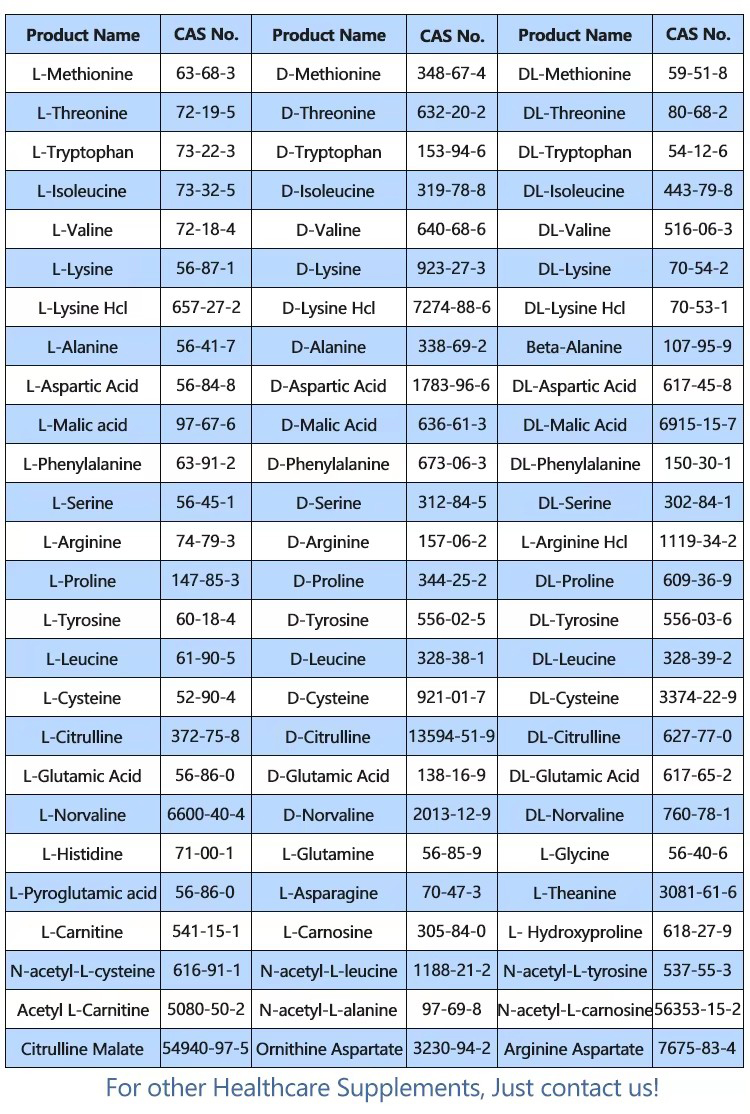N-Acetyl-L-Tyrosine (NALT) is a modified form of the amino acid L-Tyrosine, where an acetyl group is attached to the nitrogen atom of the amino group. This modification affects its properties, including solubility and absorption in the body.
Here’s how N-Acetyl-L-Tyrosine is processed and its potential effects:
1.Absorption and Bioavailability: N-Acetyl-L-Tyrosine is more water-soluble than L-Tyrosine, which theoretically could enhance its absorption in the gastrointestinal tract compared to regular L-Tyrosine.
2.Conversion in the Body: Once absorbed, N-Acetyl-L-Tyrosine can be deacetylated by enzymes in the body, converting it back into L-Tyrosine. This is a crucial step because L-Tyrosine is a precursor for several important neurotransmitters and hormones.
3.Neurotransmitter Synthesis: L-Tyrosine is involved in the synthesis of catecholamines such as dopamine, norepinephrine, and epinephrine. These neurotransmitters play essential roles in mood regulation, stress response, and cognitive function.
4.Cognitive and Performance Effects: Some studies suggest that supplementing with N-Acetyl-L-Tyrosine may support cognitive function, particularly under stressful conditions. It’s believed to enhance dopamine levels in the brain, which can improve focus, attention, and mental performance, especially in situations where cognitive demand is high.

5.Stress Management: L-Tyrosine, and by extension N-Acetyl-L-Tyrosine, is known for its potential role in mitigating the effects of stress on cognitive function and mood. It’s thought to support the production of stress hormones like cortisol and adrenaline, helping the body better cope with stress.
6.Exercise Performance: There is some interest in N-Acetyl-L-Tyrosine’s potential to improve physical performance, possibly due to its effects on neurotransmitter levels and stress response during exercise.
Overall, while N-Acetyl-L-Tyrosine shares many similarities with L-Tyrosine, its enhanced solubility and potential bioavailability make it a popular choice in dietary supplements targeting cognitive enhancement and stress management. However, as with any supplement, individual responses can vary, and it’s advisable to consult with a healthcare professional before beginning any new supplement regimen.
The negative impact of the N-Acetyl-L-Tyrosine
N-Acetyl-L-Tyrosine (NALT) is a modified form of the amino acid L-Tyrosine, and while it’s generally considered safe, there can be potential negative impacts, especially in certain circumstances or with excessive use:
1.Overstimulation and Anxiety: N-Acetyl-L-Tyrosine is known for its ability to enhance dopamine and noradrenaline levels in the brain. In some individuals, especially those sensitive to stimulants, this can lead to feelings of overstimulation, anxiety, or even panic.
2.Insomnia: Due to its stimulating effects, N-Acetyl-L-Tyrosine might interfere with sleep patterns, particularly if taken later in the day. It can cause difficulty falling asleep or staying asleep.
3.Interaction with Medications: N-Acetyl-L-Tyrosine can interact with medications that affect dopamine or adrenaline levels, such as certain antidepressants or stimulants. This interaction could potentially amplify side effects or alter the effectiveness of these medications.
4.Digestive Issues: In some cases, high doses of N-Acetyl-L-Tyrosine may cause gastrointestinal discomfort, including nausea or diarrhea.
5.Blood Pressure and Heart Rate: Because N-Acetyl-L-Tyrosine can increase adrenaline levels, it might lead to temporary increases in blood pressure and heart rate. Individuals with cardiovascular issues or hypertension should be cautious.

6.Dependence and Tolerance: There is a concern that prolonged use of N-Acetyl-L-Tyrosine might lead to tolerance, where higher doses are needed to achieve the same effects. This could potentially lead to dependence on the supplement for mental clarity or focus.
7.Quality and Dosage: The quality and purity of N-Acetyl-L-Tyrosine supplements can vary, and high doses beyond recommended levels can increase the likelihood of adverse effects.
It’s important to note that individual responses to N-Acetyl-L-Tyrosine can vary widely. Some people may experience none of these negative effects or may benefit from its cognitive-enhancing properties in moderation. As with any supplement, it’s advisable to start with a low dose to assess tolerance and effects, and to consult with a healthcare professional if you have any concerns or underlying health conditions.
